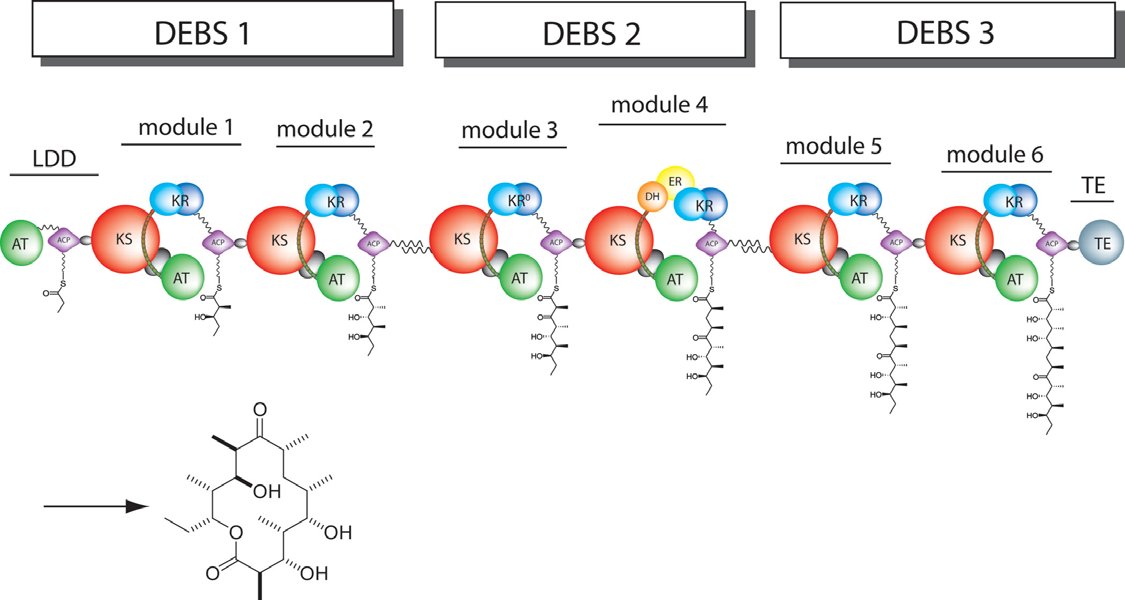6-deoxyerythronolide B synthase (DEBS)
From Proteopedia
A CBI Molecule being studied in the University of Massachusetts Amherst Chemistry-Biology Interface Program at UMass Amherst and on display at the Molecular Playground.
Polyketides are a large class of natural products produced by bacteria, fungi, and plants. Polyketides exhibit diverse structures and a wide variety of biological activities, which includes antibiotic, antitumor, anticancer, and other biological properties.
In nature, polyketides are synthesized by large multifunctional enzymes called polyketide synthases (PKS). Among several characterized PKSs, the biosynthesis of the polyketide Core of erythromycin A, 6-deoxyerythronolide B (6-dEB), has provided the paradigm for understanding the structure and function of the PKSs that are responsible for assembling complex polyketides .
The 6-deoxyerythronolide B synthase (DEBS), which catalyzes the formation of 6-dEB, consists of three large polypeptides, DEBS1, DEBS2 and DEBS3, each above 300 kD in size, and each polypeptide in DEBS is composed of two modules, where a module includes all the catalytic domains responsible for one round of chain extension and modification on the growing polyketide intermediate. Each module contains at least three essential domains; a β-keto acyl synthase or ketosynthase (KS), an acyl transferase (AT) and an acyl carrier protein (ACP). All of them catalyze extender units adding onto the growing polyketide chain. In detail, AT domain selects the appropriate carbon extender unit and transfers the units from acyl-CoA metabolite onto the phosphopantetheinyl arm of ACP, and KS domains catalyzes an ACP-bound extender unit adding onto the elongating polyketide chain from the previous module or loading module by decarboxylative condensation.
After the extender unit was added onto the elongating polyketide chain, it can be further processed by optional tailoring domains, including ketoreductases (KRs), dehydratases (DHs), and enoyl reductases (ERs), to change the oxidation state of each ketide-unit and to yield a hydroxyl, enoyl, or methylene group that may be present in the final product. In addition, the thioesterase (TE) domain that located at the C-terminus of module 6 of DEBS catalyzes the macrocyclization and releases the final product 6-dEB.
Contents |
KS-AT
|
ACP
|
DH
|
TE
|
Proteopedia Page Contributors and Editors (what is this?)
Michal Harel, Tsung-Yi Lin, Alexander Berchansky, Lawrence Sheringham Borketey, Joel L. Sussman, Jon Amoroso, David Canner, Jaime Prilusky

